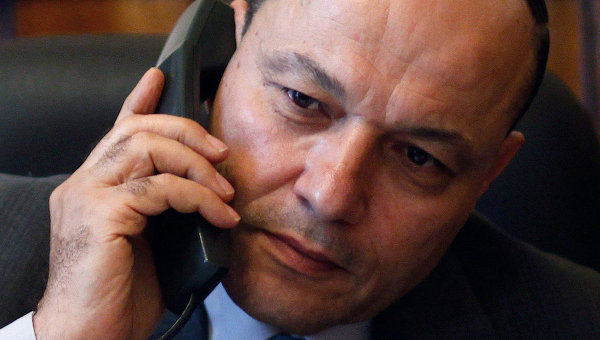A year and a half after the start of the global financial crisis, the Egyptian real estate sector is still one of the strongest industries in the country.
“The crisis didn’t really affect the market in Egypt, specifically in Cairo, but it affected the psychology of the end user or buyer. The rate of sales went down. But now everything is back to normal and even better,” Ahmed Sabbour, managing director of Al Ahly Real Estate Development Company, told Daily News Egypt.
Sitting on 5,000 housing units built in the Cairo area, Al Ahly is keeping busy in the coming period, locally and regionally.
“We are working on a lot of different projects all over the country: a new phase of a project in the North Coast; a new phase of a project in Ain Sokhna; a sports and social club near Cairo; and a new phase of a project in Sharm El-Sheikh,” Sabbour said.
The company is also considering tapping into the lower end of the housing market and expanding beyond the borders of the country, launching a sports and social club in Sudan soon and is planning a project in Ethiopia on the longer term.
In Egypt, Sabbour said, sales slowed down last year but prices did not decrease. “Prices are still undervalued in Egypt so they cannot really go down. The second reason is that the percentage of speculators is really low; when the crisis happened, the speculators rushed to sell, but it didn’t affect the market.
“The third reason was that most companies didn’t really have big bank loans; since the market was doing very well, they used to finance from the sales. So those companies didn’t panic, and we are one of them,” Sabbour said.
Lower steel prices also did not influence property prices. According to Sabbour, steel accounts for 14 percent of the cost of a building. “Usually when we sell a residential compound, it’s a villa over a piece of land. Usually the villa would account for a third of the price and the land would be two thirds of [it]. This means that steel accounts for less than 5 percent of the selling price of the villa,” he said.
Lately prices of steel have started creeping up, which is also affecting the psychology of people. “People started thinking that if steel is going up, then prices of real estate are going to fly up in the air. So people rush to buy,” Sabbour said.
His prognosis is that this time the cost of other construction materials will rise as well. The main reason for this will be fuel prices, which naturally affect all building materials.
Demand is also maintaining these high prices.
“The market driver will be the medium to medium-higher housing, but in a closed nice, decent community or a compound. Compounds of apartments will do very well in the coming few years,” predicted Sabbour.
“The demand in this sector will never stop, at least in the life of my kids. It’s time now to really concentrate on this sector and forget a little bit the high-quality luxurious housing. And this was one of the big effects of the crisis; after the crisis demand shifted a little to more affordable housing. But developers need to shift their interest,” he said.
Overall prices will increase by 20 percent by the end of the year, according to Sabbour’s prognosis.
“The future is rosy. I’m expecting this year a start of a new boom. The real boom I expect it to be third quarter of 2011 to first quarter of 2012, in this vicinity,” he said.
“I see this for many reasons. We are still very much undersupplied. After the crisis, a lot of countries have not been a hub any more for real estate. These are going to move towards us. [A good example are] the Egyptians living in the Gulf. After what happened there in Dubai, they only feel safe and secure to come back and own real estate in Egypt,” he said.
Europeans and people from the Gulf, who used to buy in areas that were deeply affected, like Dubai and England, now come to Egypt with a real potential to buy, continued Sabbour. This applies to investors as well.
He expects a lot of investors to come to Egypt and new projects, stressing that for its part, the country should be prepared to attract the newcomers by facilitating access to buying land, better access to enter the country as well as improved infrastructure, namely in tourism.
Sabbour pointed out that the real estate guru Sam Zell has already identified Egypt as a promising real estate market to invest in after the crisis. According to Reuters, Zell specifically indicated the “enormous” shortage of housing as a major market driver in Egypt. China, Brazil and Mexico were also recommended as markets with significant potential.

